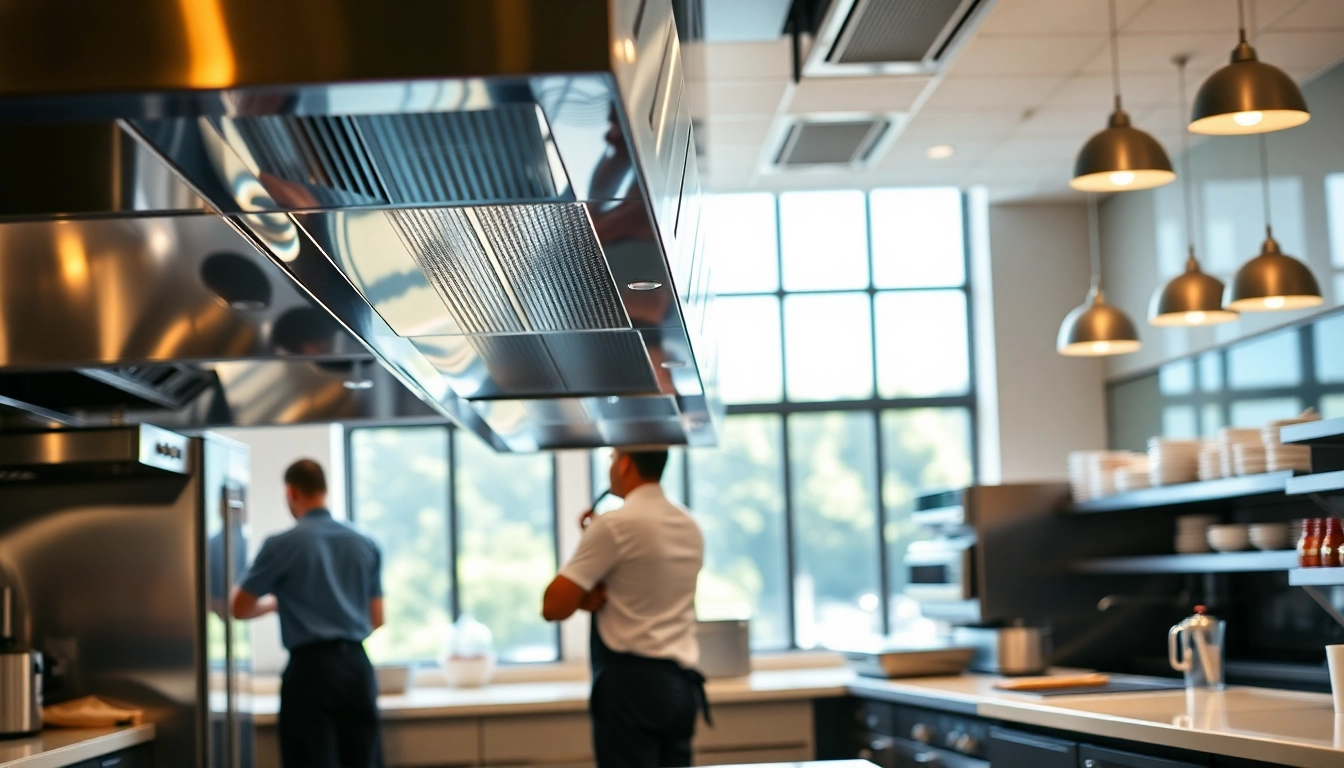The Importance of Restaurant Exhaust Hood Cleaning Service
Kitchens in restaurants are dynamic environments where food is prepared, cooked, and served in high-volume settings. Amid this hustle, the importance of a clean and functional exhaust hood system often goes unnoticed. Regular cleaning and maintenance of these systems are not only crucial for fire safety and compliance but are also an essential part of health regulations and overall kitchen efficiency. In this context, a professional Restaurant Exhaust Hood Cleaning service plays a pivotal role in ensuring your kitchen operates smoothly and safely.
Understanding Fire Hazards
The accumulation of grease and flammable materials in kitchen exhaust hoods presents significant fire hazards. In fact, the National Fire Protection Association (NFPA) states that nearly 50% of restaurant fires originate in the kitchen, often due to improper maintenance. A build-up of grease can ignite quickly, spreading flames throughout the kitchen, causing substantial damage, and posing life-threatening risks to staff and patrons alike.
Health Implications of Poor Maintenance
A greasy exhaust hood system doesn’t just increase fire risks; it also poses severe health risks. Poor ventilation can lead to the proliferation of harmful bacteria like Salmonella and E. coli, which can easily contaminate food. Moreover, a buildup of grease and particulates in the air can worsen indoor air quality, leading to issues such as respiratory problems, allergies, and other health-related complications for kitchen staff. Maintaining a clean exhaust system is instrumental in creating a healthier working environment for everyone involved.
Legal Requirements and Standards
Every restaurant must comply with local health regulations, including maintenance and cleaning standards for exhaust hoods. Regulatory bodies often require documentation of service contracts, cleaning schedules, and compliance with standards such as NFPA 96, which outlines practices to reduce fire risks associated with commercial cooking operations. A failure to adhere to these legal requirements can result in fines, penalties, and even the closure of your establishment, making the importance of a professional cleaning service undeniable.
Common Problems That Prompt the Need for Restaurant Exhaust Hood Cleaning Service
Buildup of Grease and Debris
One of the most common issues leading to the need for a restaurant exhaust hood cleaning service is grease buildup. Over time, grease from cooking accumulates within the exhaust ducts, fans, filters, and hoods. This not only becomes a fire hazard but also obstructs airflow, leading to inefficient exhaust systems that can compromise kitchen productivity.
Unpleasant Odors Arising from the Kitchen
Another problem caused by poor maintenance is the emergence of unpleasant odors. Grease, food particles, and general kitchen waste can produce foul smells if not adequately removed. These odors can permeate dining areas and negatively affect the customer experience, leading to potential loss of business. Regular cleaning helps to eliminate these unpleasant odors and ensure a pleasant atmosphere for customers.
Decreased Kitchen Efficiency and Performance
A dirty exhaust system doesn’t just affect safety; it can significantly hinder kitchen efficiency. When exhaust hoods and ducts are clogged with grease and debris, they can reduce ventilation effectiveness, leading to hotter kitchen environments. This can cause staff discomfort and impact food preparation speeds, ultimately affecting service quality. Ensuring clean exhaust systems helps maintain optimal cooking temperatures and improves the overall efficiency of kitchen operations.
Choosing the Right Provider for Restaurant Exhaust Hood Cleaning Service
What to Look for in a Service Provider
Selecting the right service provider involves evaluating their expertise and experience. Look for companies that specialize in restaurant exhaust hood cleaning and have a proven track record in the industry. They should be compliant with local health regulations and certified by relevant authorities like the NFPA. Additionally, inquire about the cleaning methods and equipment they utilize to ensure thoroughness and safety.
Key Questions to Ask Before Hiring
Before making a final decision, ask potential service providers specific questions such as:
- How often do you recommend cleaning the exhaust system?
- Can you provide references or case studies from similar restaurants?
- What certifications do your technicians hold?
- Do you carry liability insurance?
These questions not only gauge a company’s credibility but also demonstrate their commitment to providing safe and effective services.
Evaluating Customer Testimonials and Reviews
Customer testimonials and online reviews offer insight into the service quality you can expect. Look for consistent positive feedback regarding the thoroughness, professionalism, and reliability of a service provider. A company with numerous testimonials attesting to effective service delivery is more likely to meet your needs and expectations.
Best Practices for Ongoing Maintenance of Exhaust Systems
Regular Inspection and Cleaning Schedules
Implementing a regular inspection and cleaning schedule is essential for maintaining a healthy kitchen environment. Based on your restaurant’s cooking volume, schedule professional cleaning at least every six months, or more frequently if necessary. Regular checks help identify potential issues before they escalate, ensuring continued compliance with legal regulations.
DIY Maintenance Tips for Restaurant Owners
While professional cleaning services are crucial, restaurant owners can also take proactive steps to maintain their exhaust systems. Regularly wipe down surfaces to remove visible grease, and clean filters weekly to enhance airflow. Additionally, ensure that the kitchen is well-ventilated during peak cooking hours and address any irregular cooking practices that may increase grease accumulation.
Investing in Professional Services vs. In-House Cleaning
While budget considerations may tempt some restaurant owners to consider in-house cleaning, professional services offer expertise, efficiency, and assurance of compliance with health standards. In-house staff may lack the specialized knowledge required to conduct thorough cleanings. Investing in professional services, therefore, often proves to be a safer and more effective approach in the long run.
Performance Metrics for Restaurant Exhaust Hood Cleaning Service
Measuring the Efficiency of Your Exhaust System
Regular assessments of your exhaust system’s performance are vital to understanding its efficiency. Metrics to monitor include airflow rates, temperature levels, and compliance with fire safety codes. Additionally, observe changes in kitchen heating; an efficient exhaust system should reduce overall kitchen temperature, creating a more comfortable working environment.
Determining Cost-Benefit Analysis for Regular Cleaning
While regular cleaning incurs costs, it’s essential to conduct a cost-benefit analysis to gauge the return on investment. Consider potential savings from averting fire hazards, improving energy efficiency, and maintaining compliance with health regulations. A clean exhaust system can lead to lower operational costs and higher profitability in the long term.
Tracking Improvements in Kitchen Environment
Finally, track changes in your kitchen environment metrics post-cleaning. Improvements can be measured in reduced fire hazards, fewer health violations, enhanced air quality, and employee satisfaction. Soliciting feedback from kitchen staff can also provide valuable insight into the impact of efficient cleaning services on their daily operations.



